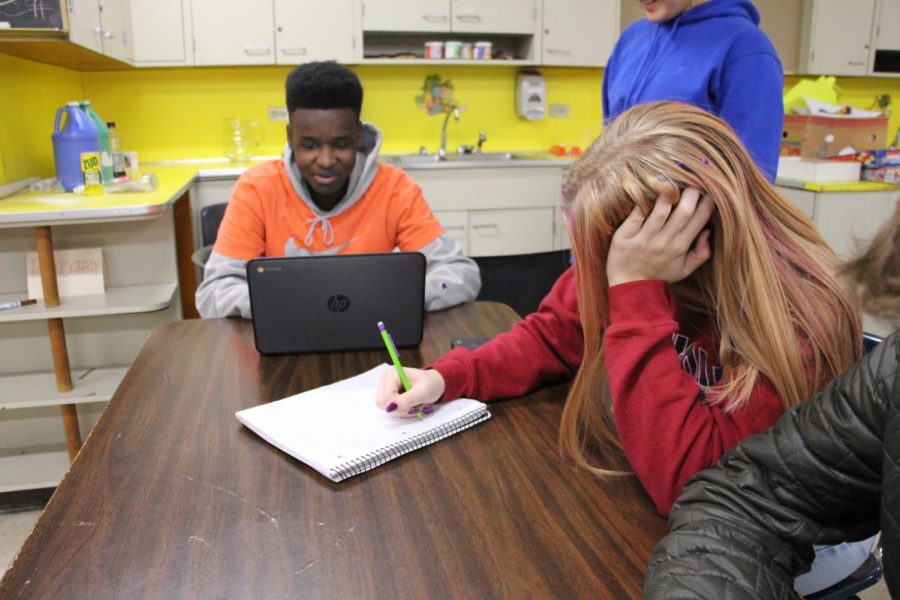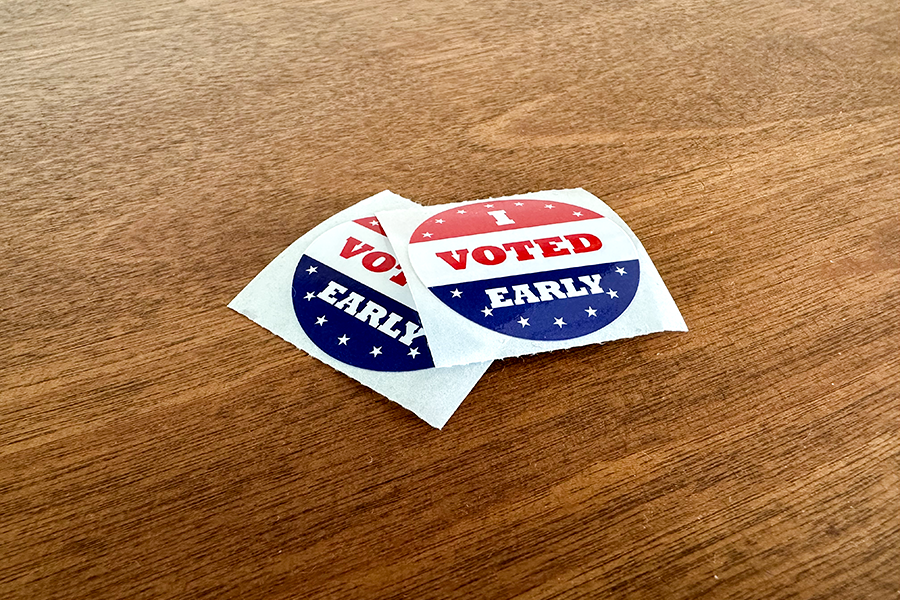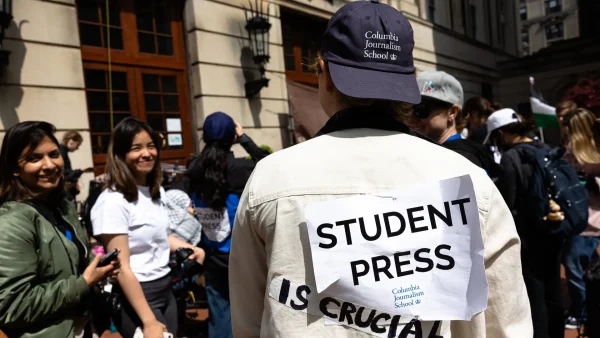Sports participation causes students to do better in school
Student athletes often learn to get their homework and schoolwork done during whatever free time they have. Misha Donnelly and Andrew Njogu have found a flow for how to manage their time. “Time management is a big thing you have to work on,” said Njogu.
November 8, 2019
Wake up, go to school, go to practice or a game, do your homework, repeat. Student-athletes have a lot on their plates; they have to find a balance between academic performance and athletic performance. South offers around ten sports per season which allow the option for many students to participate. People often assume that sports have a negative impact on grades and overall performance at school but in order to be eligible to play a sport, a 2.0 GPA has to be maintained. The expectation is that students will stay on track to graduate and if they cannot do that then they will no longer be able to play their sport, at least until their grades are improved.
A BBC article from 2013 discussed a study that found teenagers’ academic performance to improve when they exercised regularly. The study found that there is a link between test scores and exercise. Of the 5,000 young people who participated, observers found that the students who exercised regularly did better on average on their exams than those who didn’t. Moreover, South students seem to exhibit similar results. Andrew Njogu, a junior on the men’s varsity soccer team has had a similar experience as that of the study. “[Sports] motivate me to do better.” Njogu has been playing club soccer since middle school— he’s used to balancing sports and school. “It’s hard to adjust if you just start doing sports and try to do good in school, but you get used to it. Time management is a big thing you have to work on.”
Student-athletes have a time crunch after practice to get homework done. How do they do it? “You find the small amounts of time that you can get work done. I feel like when [you aren’t doing a sport,] you go home right after school and have all this time available, so you keep procrastinating and relaxing until around 9 pm, but when you have a sport you’ve been at practice for two hours and you know you have to do your work,” said Misha Donnelly, a junior on the Junior Varsity volleyball team.
For the track team, practice starts at 4:00 pm instead of 3:30, which allows athletes to do homework between school and practice. Senior, Raul Ortiz is a member of the track team and a player on the varsity soccer team is able to fit time in for his homework. “We have the time to do [homework] and we can get our work done which is good.” A significant challenge that athletes are faced with when it comes to getting school work done is being tired after practice, but still they manage to persevere.
Although it seems difficult to complete school work on game nights, student-athletes have mastered a craft. “Game days go really late, sometimes until 9:30, usually if I’m not playing I’ll be in the stands doing my homework,” said Donnelly. Athletes pick up on these hacks, which allow them to succeed on the field/court/etc. and in the classroom. “I’ve been doing volleyball for three years at South, so I have found time management to be pretty easy.”
Even teachers notice that athletes excel in school. Randy Niemiec, who teaches both upperclassmen and underclassmen in geometry and AP Statistics has noticed how well student-athletes perform in school. “When you’re involved in athletics you’re going to be interacting with other students who care about their academics,” said Niemiec. ‘Psychology Today’ states that participation in sports builds character and Niemiec has also noticed this to be true in with his student-athletes. “There are character traits that you get from participating in athletics like discipline, organization, time management, and delayed gratification which are super helpful in terms of being a good student as well,” added Niemiec.
Students feel that sometimes it can be challenging to participate in a sport during the school year, however many athletes have a love for their sports along with a motivation for school. When asked if he had ever considered quitting his sport because of academics Ortiz replied with “No, never.” Athletes try their best to do well in school and in their sports.
Overall, sports motivate students to maintain good grades, work well with others, and have fun. Being involved in athletics makes students healthier both physically and mentally. “Being in a sport is a healthy thing to do, in terms of stress relief and getting exercise. Being healthy in that regard can also help you be a better student,” said Niemiec.







Memphis Fentz • Dec 2, 2022 at 4:19 pm
This article is very good. This is something that helped me a lot with my project. Thank you!